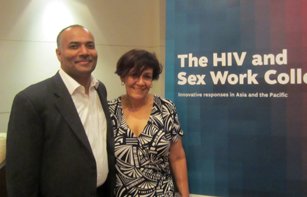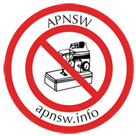Launched in 2012, “The HIV and Sex Work Collection: Innovative Responses in Asia and the Pacific” is a collection of case studies highlighting the work undertaken by sex worker-led community based organisations and networks in undertaking HIV related advocacy efforts.
According to Tracey Tully (at the time working with APNSWP), the collection demonstrates the effectiveness of peer to peer engagement.At the launch of the resource Tracey said: “New and emerging groups can get help from the network of organizations, sex workers can learn from other sex workers about everything from problem solving to proposal writing.”

The collection was the result of a collaboration between UNFPA, UNAIDS and the Asia Pacific Network of Sex Workers (APNSW). It specifically focuses on 11 APNSW member organisations from across a diverse range of countries within the Asia and Pacific region, including Myanmar, India, China, Thailand, Nepal and Fiji.
The initiatives highlighted in the collection include projects that target sex workers of all genders, working in a variety of sex industry settings. The case studies also provide details about the processes each organisation/ network has used in undertaking advocacy. They include insights from sex workers who evaluate how and why the advocacy strategies they have undertaken have been effective in engaging the community, policy makers and other stakeholders. The case studies also document systematic barriers sex workers have encountered whilst undertaking advocacy and implementing targeted programs.

A primary aim of the resource was to provide a platform for sex worker groups who are using unique peer-led strategies to respond to HIV within the sex industry context. It highlights how sex worker-led initiatives have empowered sex workers to recognise and demand their human rights in relation to the criminalisation of sex work, occupational health and safety issues, access to health care options, and to challenge gender-based violence.
